Selling your home FSBO (For Sale By Owner) in Downtown Plymouth can be enticing – after all, Plymouth’s housing market has been strong lately, and skipping agent commissions sounds like big savings. But before you stick a “For Sale” sign in the yard, it’s important to understand the local market trends, the FSBO process, and the challenges that come with going it alone. In this guide, we’ll dive into 2024–2025 Downtown Plymouth home values (median prices, days on market, FSBO success rates), walk through the FSBO sale step-by-step, compare doing it yourself vs. hiring an agent (with insight into The Perna Team’s advantages), and even look at who’s buying in Downtown Plymouth these days. By the end, you’ll have a clear picture of what to expect and how to set yourself up for success if you choose to sell your Plymouth home FSBO.

Downtown Plymouth Housing Market Trends 2024–2025
Downtown Plymouth’s real estate market has been on a notable upswing. As of early 2025, the median home sale price in the downtown area is around $455,000, which is about 40% higher than the year before. (This jump partly reflects low inventory and a few higher-end sales skewing the average, but it underscores how hot this market is.) In the broader Plymouth area, home values are also elevated: the median sold price across all of Plymouth was roughly $442,000 in March 2025, up about 1.8% year-over-year. In short, prices have been trending upward into 2024 and 2025, which is good news for sellers.
Not only are prices strong, but buyer demand remains high. Plymouth is still considered a seller’s market – there are more buyers house-hunting than there are homes available to buy. Homes in Plymouth have generally been selling quickly as a result. In March 2025, about 79% of homes sold within 30 days of listing. The average days on market was around 35 days (about five weeks), which is a bit slower than the almost frenzy-level speed of the prior year, but still indicates fairly brisk sales. In Downtown Plymouth specifically, some properties might take a little longer (especially if they’re unique or higher-priced), but anything priced right for the market tends to get snatched up. This is all encouraging if you’re a seller – it means there’s a solid chance of attracting buyers relatively quickly.
FSBO vs. the market
Given these market conditions, you might think selling FSBO will be a breeze. However, it’s worth noting that most Plymouth sellers still use real estate agents. In fact, FSBO sales made up only about 6–7% of all home sales in 2024, an all-time low share. And those who do sell FSBO often end up with lower prices: the typical FSBO home in recent data sold for around $380,000, versus $435,000 for agent-assisted sales. That’s a sizable difference, which suggests that even in a strong market, going solo can affect your bottom line. It’s not that a FSBO can’t succeed – it’s just that the odds aren’t exactly in your favor. In fact, one industry study found that while 36% of homeowners initially try to sell on their own, only about 11% actually succeed in closing a deal without an agent’s help. The rest either take their home off the market or end up hiring an agent after facing challenges.
Downtown Plymouth’s market is hot, but selling a home is more than just having a desirable location. You need to price correctly, reach the right buyers, and navigate negotiations and paperwork. Next, we’ll break down how to do all that as a FSBO seller.
How to Sell Your Downtown Plymouth Home FSBO: Step-by-Step
If you decide to proceed with a FSBO sale in Downtown Plymouth, be prepared to wear many hats – you’ll be the pricing expert, the marketer, the scheduler, the negotiator, and the paperwork guru all at once. Here’s a step-by-step look at the FSBO process and best practices at each stage:
1. Price Your Home Correctly from the Start
Pricing is arguably the most important step. Set too high a price, and your home could sit on the market even in a hot area; price too low, and you leave money on the table. Research recent comparable sales in Downtown Plymouth – look at homes similar to yours in size, age, and condition that sold in the last few months. Pay special attention to Downtown Plymouth comps because values can vary block by block (a historic bungalow steps from Kellogg Park might fetch a different price than a similar-sized home farther out). Take note of the median sale prices we mentioned (mid-$400s) as a general ballpark, but adjust for your home’s features. If your home is a 3-bedroom historic colonial with modern updates, see what similar ones have sold for. Also consider getting a pre-listing appraisal or an experienced agent’s comparative market analysis (even if you plan to FSBO, some agents or appraisers will do this for a fee) to double-check your number. Remember, Plymouth buyers are well-informed; they’ve likely seen multiple homes. A well-priced home will attract more interest and possibly multiple offers, whereas an overpriced FSBO can languish despite the strong market.
2. Prepare Your Home for Sale
First impressions matter. Before you officially list, take time to get your home show-ready. This means decluttering every room, depersonalizing a bit (buyers should envision themselves in the space, which is easier without your family photos on every wall), and taking care of small repairs. A fresh coat of neutral paint or sprucing up the landscaping (think neat lawn, seasonal flowers, clean sidewalks) can do wonders. In Downtown Plymouth, many homes are older, charming houses – emphasize that charm by making sure everything is clean and well-maintained. If you have a front porch, dress it up with planters; if you have original woodwork, polish it up. Consider professional staging for key rooms or at least get a friend’s honest opinion on how to maximize space and light. You’ll also want to invest in good photography. Since you won’t have an agent’s pro photographer, hire one or use a high-quality camera yourself. Bright, well-composed photos of your interior and a beautiful curb-front shot will draw buyers in (dim, cluttered pictures will not). Don’t forget to highlight features that Plymouth buyers love – for example, if you’re within walking distance of Kellogg Park or the Penn Theatre, mention and show it; if you have a renovated kitchen or a spacious backyard (valuable in the downtown area), make sure it stands out.
.png)
3. Market Your Home Aggressively
When you’re FSBO, you are in charge of marketing. Simply putting it on Craigslist and a yard sign won’t cut it if you want maximum exposure. Here are some marketing steps:
- Yard Sign and Flyers: Place a bold “For Sale By Owner” sign on your lawn (where it’s highly visible from the street). Have info sheets or flyers available for drive-by lookers – include basic details (price, beds/baths, your phone/email).
- Online Listings: List your home on major FSBO and real estate websites. Zillow, Trulia, Facebook Marketplace, and FSBO.com are popular. Be very detailed in your description – sell the Downtown Plymouth lifestyle as much as the house (e.g., “Walk two blocks to summer concerts at Kellogg Park” or “Steps from downtown’s best restaurants and shops”). Upload all those great photos you took.
- Flat-Fee MLS: Consider paying for a flat-fee MLS listing service. The MLS is the database agents use, and it feeds sites like Realtor.com. Getting your home on the MLS (even as a FSBO listing) means buyer’s agents will see it. You’ll likely have to offer a buyer’s agent commission (often 2-3%), but it greatly expands your buyer pool. Many serious buyers are working with agents, and if you’re not on the MLS, your home might be invisible to them.
- Social Media and Word of Mouth: Spread the word on community Facebook groups, Nextdoor, and your personal social media. “Downtown Plymouth” is a close-knit community – let neighbors know you’re selling; they might have friends or family who want to move in. Leverage any local bulletin boards or newsletters. The more eyeballs on your listing, the better.
- Open House: Announce an open house (on a weekend) in your ads and with signs. This lets multiple buyers come through in a defined window. Put out directional signs from main roads leading to your home during the open house hours to capture drive-by traffic. At the open house, have sign-in sheets to collect contact info (you’ll want to follow up with interested parties). Be prepared to answer lots of questions from visitors – not just about the house, but also about the neighborhood, schools, and Downtown Plymouth amenities.
4. Handle Inquiries and Showings Like a Pro
Marketing works: soon the calls, emails, and texts start coming in. Now you need to be responsive. Answer your phone or call people back promptly – a missed call could be a missed buyer. Be friendly and informative on the phone. People will want to schedule showings. It’s wise to pre-screen a bit: if someone wants a private showing, confirm they’re a serious buyer (don’t be shy to ask if they are pre-approved for a mortgage, especially if you’re juggling many showing requests). Always record the appointment times and the person’s name and number. For your safety, have a friend or family member be around or on call when you show the home, and secure valuables just in case. When buyers or their agents come for the showing, greet them warmly and give them space to look around (hovering over them can make them uncomfortable). Point out unique features of your home, but also let the house “sell itself” a bit. Pro tip: Create a simple info packet to leave on the kitchen table – include the property disclosure, a highlight sheet of features/upgrades, utility cost averages, and maybe a little blurb about the neighborhood (distance to parks, favorite local restaurants, etc.). This gives buyers something to take with them. Be ready to adjust your schedule – popular homes might get dozens of showings in the first week. Yes, this can be exhausting when you’re FSBO because you can’t hand it off to an agent, but your goal is to accommodate as many qualified buyers as possible.
5. Navigate Offers and Negotiations
With luck (and good pricing), you’ll start receiving offers. This is where things get really real. Each offer will come in the form of a written purchase agreement contract, likely with contingencies. Key things to watch:
- Offer Price: Obviously, how much are they offering? Do they ask for any seller concessions (like help with closing costs)?
- Financing: Is it a cash offer or is the buyer getting a mortgage? If mortgage, is there a pre-approval letter attached? (Make sure any financed offer comes from a pre-approved buyer; you don’t want to tie up your home with someone who can’t actually get a loan.)
- Contingencies: Almost every offer will have an inspection contingency (the buyer can inspect the home and potentially negotiate or back out if there are issues) and a financing contingency (if the loan falls through, they can exit). Some may have an appraisal contingency (if the home appraises for less than the purchase price, they renegotiate or exit). Pay attention to any home sale contingency (buyer must sell their current home first) – that adds uncertainty.
- Timing: Look at the proposed closing date and any requests for you to pay for a home warranty, or include appliances, etc. Also note how long the offer stays open (there will be an expiration date by which you need to respond).
You can accept, reject, or counteroffer. It’s common to counteroffer – for example, you might counter a $420k offer at $430k, or refuse to pay for certain closing costs. When negotiating, keep emotions in check. It helps to focus on facts and fairness: use the data you gathered when pricing to justify your counter. Be polite and respectful in all communications (often, buyers’ agents will be involved even if you don’t have an agent – some agents don’t love dealing directly with FSBO sellers, but they will if their client loves your home). If you have multiple offers, you’re in a great position – you can even ask for “highest and best” from each or choose the one that best fits your needs (not just price, but maybe a cash offer or a flexible closing date). Remember that negotiation is a skill – experienced Realtors do this routinely, whereas FSBO sellers might find it stressful. Don’t hesitate to consult a real estate attorney for advice at this stage if you’re unsure; it’s critical to get the terms right.
.png)
6. Inspection, Appraisal & Due Diligence
Once you and a buyer sign a purchase agreement, you’re under contract, but the process isn’t over. Now the buyer will schedule a home inspection (usually within 7-10 days of contract). Prepare for the inspection by making sure the inspector can access all areas (clear away stuff from the furnace, electric panel, attic, etc.). They will scrutinize everything. After the inspection, the buyer may come back with requests for repairs or a credit (money off the price in lieu of repairs). This can become another round of negotiation. Review their requests seriously – if it’s a major issue (e.g., leaking roof, safety hazard), you may need to fix it or concede something to keep the deal on track. If it’s minor, you might politely decline. Without an agent’s guidance, lean on logical reasoning: what might the next buyer ask for, if this one walks away? Often it’s wise to address reasonable repairs to move forward. Next, if the buyer is getting a loan, the appraisal happens. The bank’s appraiser will assess your home’s value. If you priced right, it should appraise at or above the purchase price. If it comes in low (not uncommon in rapidly appreciating markets like Plymouth), you’ll have to negotiate again – either the buyer brings more cash, you lower the price, or somewhere in between. Keep clear communication with the buyer or their agent through these steps. Hurdles like inspection and appraisal are where deals can fall apart, so handling them calmly and fairly is key.
7. Closing the Sale (Paperwork and Legalities)
While all the above is happening, there’s a mountain of paperwork and legal requirements that need your attention. In Michigan, sellers must provide a Seller’s Disclosure Statement to any buyer, usually at the time of offer or beforeagerlawoffice.com. Hopefully, you prepared this form when you listed the house (it details any known issues with the property – plumbing, electrical, roof, etc.). If you haven’t yet, do it now. Also, if your home was built before 1978, you need to give the buyer a Lead-Based Paint Disclosure form (federal law). As a FSBO, it’s highly recommended that you hire a real estate attorney or a title company early in the contract phase to handle the closing process. They can help ensure the purchase agreement is filled out correctly and that you’re meeting all obligations. The title company will typically handle the title search (to make sure there are no liens or ownership issues) and coordinate the actual closing. You’ll be working on scheduling a closing date, and prior to that, you’ll need to sign the deed transferring ownership, as well as other documents like transfer tax forms. In Wayne County (where Plymouth is located), there will be county and state transfer taxes due (often taken out of your proceeds). The closing is usually a meeting at the title company or attorney’s office where all parties sign the final documents. As a FSBO seller, you’ll sign the deed and settlement statement, etc., and the buyer signs their loan documents if applicable. Once everything is signed and the funds are distributed, the sale is complete – congratulations, you’ve sold your home! Just make sure you’ve coordinated handing over the keys, garage door openers, and any appliance manuals/house information for the new owner.
Throughout this FSBO process, organization and attention to detail are your best friends. Keep a folder (physical or digital) with all your documents, forms, and notes. Respond to deadlines promptly. It’s a lot to manage, but plenty of people do successfully sell homes on their own. That said, now that you see what’s involved, it’s worth considering how these tasks compare with having a real estate agent in your corner – especially in a complex, high-value market like Downtown Plymouth. Let’s explore that next.
FSBO vs. Realtor: Challenges and Trade-Offs in Downtown Plymouth
Selling a home is a major project, and going FSBO means taking on every aspect of that project yourself. While you save on paying a listing agent commission, you’ll be doing a lot of heavy lifting. It’s important to weigh the challenges of FSBO against the value a professional agent provides, particularly in a competitive market like Plymouth. Here’s how FSBO compares to working with an experienced real estate agent – and specifically what advantages The Perna Team can offer:
- Pricing Strategy & Market Knowledge: Pricing isn’t guesswork for a top agent. Professionals have access to detailed MLS data and experience with Plymouth’s micro-markets. They can pinpoint the sweet spot for pricing – not too low, not too high. As a FSBO, you risk mispricing. Downtown Plymouth has a mix of home styles and ages; a seasoned agent from The Perna Team will know, for example, how much a renovated 1920s home near Penn Theater should fetch versus a newer condo off Harvey Street. Mispricing is one of the biggest FSBO pitfalls – agents help you avoid that by grounding the price in real-world data and current buyer demand.
- Marketing Reach & Resources: When you sell FSBO, your marketing is limited to what you can personally do. An agent-backed sale, on the other hand, unleashes full-scale marketing. The Perna Team, for instance, has a comprehensive marketing plan that includes professional photography, 3D virtual tours, email blasts to thousands of buyers, social media campaigns, and prominent placement on real estate websites. Crucially, they list your home on the MLS, which syndicates everywhere and reaches every local agent’s radar. While you can get on the MLS with a FSBO via a service, you likely won’t match the polish and breadth of an agent’s marketing. Moreover, The Perna Team brings in local expertise in staging and presenting your home – they know what Plymouth buyers respond to. Effective marketing can mean more buyer interest and higher offers. FSBO sellers may save a commission, but if you don’t reach that one buyer willing to pay $10,000 more because they never saw your ad, did you really come out ahead?
- Time & Convenience: Selling a home yourself is time-consuming. From fielding calls at work to giving evening and weekend tours, FSBO can feel like a part-time job (on top of your actual job!). Real estate agents take that burden off your shoulders. The Perna Team coordinates showings for you (using tools to confirm buyers are qualified), hosts open houses, and filters out the window-shoppers from serious offers. This not only saves you time, but also reduces stress – you don’t have to personally handle the logistics every time someone wants to see your home. For many FSBO sellers, the sheer inconvenience becomes overwhelming. An agent effectively becomes your project manager, letting you continue with your life while they handle the sale activities.
- Negotiation Skills: Negotiating on price and terms requires finesse and experience. It’s not just about haggling – it’s about understanding the motivations of the buyer, reading between the lines of an offer, and structuring a deal that sticks. The Perna Team has seasoned negotiators who have seen it all: multiple-offer bidding wars, tough inspectors, low appraisals, you name it. They know how to advocate for your interests without killing the deal. As a FSBO seller, you might find it uncomfortable to negotiate directly (it can get emotional when it’s your home). There’s also the risk of being out-negotiated by a buyer’s savvy agent. With an agent like those on The Perna Team, you have a skilled intermediary. They can often secure a higher price or better terms – for instance, negotiating that you keep your desired possession date or that the buyer waives minor repair requests – because they do this daily. Their negotiation skills can literally put more money in your pocket, more than covering the commission cost.
- Legal Guidance & Paperwork: Real estate transactions involve legal contracts and disclosure laws. One small mistake in paperwork can lead to big problems (up to and including lawsuits, in worst cases). When you work with an agent, they guide you through all required paperwork and make sure it’s handled correctly. The Perna Team’s agents are well-versed in Michigan real estate contracts and regulations. They will ensure you provide all necessary disclosures (so you don’t accidentally violate the Michigan Seller Disclosure Act), include protective contingencies for your situation, and meet all deadlines. If any issues arise (title problems, buyer financing delays, etc.), they have the knowledge to navigate them or the broker/legal support to advise on solutions. FSBO sellers have to figure this out solo or pay an attorney by the hour. Having an experienced agent is like having a knowledgeable co-pilot who makes sure the transaction stays legally sound and on track. This reduces your legal risk significantly. It’s peace of mind knowing an expert has dotted the i’s and crossed the t’s.
- Track Record & Results: Ultimately, you care about getting your home sold for the best price in a reasonable time frame. This is where The Perna Team’s track record in the Plymouth area speaks volumes. (They are one of the top-selling teams in Metro Detroit – for example, in a recent 12-month period they handled over 400 home sales, which is experience that few others can match.) With that many transactions, they have a deep well of market insight and a long list of satisfied clients. Statistically, using a realtor tends to result in a higher sale price than FSBO, and a top team can often push the price even higher by creating competition among buyers. They also have a network of buyers and other agents; sometimes The Perna Team might already know a buyer who’s looking specifically for a home like yours in Downtown Plymouth. FSBO sellers miss out on those connections. Additionally, agents are motivated to see the deal through – they only get paid when it closes – so they are incented to solve problems and keep things moving. FSBO transactions can fall apart more easily without that experienced hand holding it together. Remember the stat that only about 1 in 10 FSBO attempts actually succeed all the way to closing. In contrast, when you list with a reputable agent, the vast majority of the time you will get to the closing table successfully.
Selling FSBO can save you the listing commission (often around 3% of the sale price), but you’re taking on marketing costs, significant time investment, and potential risks. An experienced local agent like The Perna Team charges a commission, but provides full-service value – potentially a higher selling price, far greater exposure, expert handling of the transaction, and protection against pitfalls. For many Plymouth homeowners, that trade-off is well worth it. That said, if you already have a trusted buyer lined up (for example, a neighbor or friend wants to buy your house) and you’re comfortable with the paperwork, FSBO might make sense. Just go in with eyes open about what you’ll be handling solo.
.png)
Who’s Buying in Downtown Plymouth? (Buyer Demographics & Demand)
One key to selling effectively – whether FSBO or through an agent – is understanding your buyer audience. Downtown Plymouth holds broad appeal, and you’ll encounter several types of buyers in this market. Knowing what these buyers are looking for can help you target your marketing and anticipate their questions or priorities. Here’s a look at the typical buyer demographics in Downtown Plymouth and the home features they tend to demand:
- Families with Children: Plymouth is extremely popular with families thanks to its top-notch school district and safe, community-oriented atmosphere. The Plymouth-Canton schools are highly rated, even ranking among the top districts in Michigan for academic performance. This draws parents who want a great education for their kids. These buyers usually seek single-family homes – often 3-4 bedroom houses with a yard. Proximity to parks (like Kellogg Park or local playgrounds) and a kid-friendly neighborhood is a big plus. They love Downtown Plymouth for its family activities (e.g. Ice Festival, Fall Festival) and the ability to walk to get ice cream or attend events in the park. If your home has a finished basement playroom or is on a quiet cul-de-sac nearby, highlight those features to attract family buyers. Also, be ready to answer questions about things like the nearest elementary school or community sports programs.
- Young Professionals and Couples: Downtown Plymouth’s vibrant downtown scene – the restaurants, coffee shops, boutique stores, and year-round events – is a major draw for younger buyers and couples without kids (or with very young ones). They enjoy the walkable lifestyle that Downtown Plymouth offers, which is somewhat unique in suburban Metro Detroit. These buyers might be moving from apartments or urban areas and are looking for charm plus convenience. They often appreciate homes that are updated and move-in ready (since many have busy careers and don’t want a big renovation project). Smaller single-family homes, townhouses, or condos close to downtown are appealing to this group. For example, a modern condo unit or a cute 2-bedroom bungalow can attract young professionals who want to be close to the action. If you’re selling a home with a short walk to downtown nightlife or with a home office space (a consideration for remote workers), mention it. This demographic also tends to value stylish features – updated kitchen, smart home gadgets, etc. – so play those up in your listing.
- Empty Nesters and Retirees: A significant number of buyers in Plymouth are folks downsizing from larger suburban homes now that their kids are grown. Downtown Plymouth’s charm and convenience is a magnet for retirees who want to stay active. They look for low-maintenance living but still want enough space for comfort. Ranch-style homes (one-floor living) or condos with elevators are especially popular, as they plan for aging in place. They love being able to walk to downtown for a morning coffee, dinner, or the farmer’s market. This group might be moving from Plymouth Township, Northville, or other nearby areas specifically into the city to be closer to the social scene. If your home could appeal to an empty-nester (for instance, a first-floor primary bedroom, or a manageable garden, or a secure condo building), make sure to tailor some marketing to that. Emphasize quiet enjoyment, convenience, and any upscale features (like an updated master bath, which this group often appreciates).
Of course, these are general categories – individual buyers will vary. But the big picture is that Downtown Plymouth has broad appeal: it’s not a niche market that only one type of person wants. You might have a bidding war between a young couple and a retiree for the same cozy colonial, each for different reasons! What almost all Plymouth buyers have in common is that they appreciate the blend of small-town feel and amenities. They’re attracted to things like the community events, the historic character of the town, and the strong sense of community pride. When marketing FSBO, leverage these selling points: mention the “vibrant Downtown Plymouth lifestyle” in your ads, because you’re not just selling a house, you’re selling the location and lifestyle, too.
In terms of current market demand: single-family homes in Downtown Plymouth (especially updated ones) tend to have the widest buyer pool – families and upsizers want them, and even downsizers sometimes compete for smaller ones. Condos/townhomes have a slightly narrower audience (mostly young professionals and downsizers), but since there are fewer of them in Plymouth, they also sell well when available. Entry-level price points (for Plymouth that might be under $350K) see very high demand. Higher-end listings (the $600K+ range) will have a smaller buyer pool, but given Plymouth’s cachet, there are luxury buyers looking for walkable downtown living too. Keep these factors in mind when strategizing your sale.
By understanding who your likely buyers are, you can better prepare the home (for example, stage that spare room as a home office for the professional, or as a nursery to cue the family buyer – whatever fits) and speak to the features that matter most to your target audience.
.png)
Making the Most of Your Downtown Plymouth Sale
Deciding to sell your Downtown Plymouth home FSBO is a bold choice, and with the information above, you’re now much better prepared for the journey. You’ve seen that our local market is robust – prices are high and buyers are active – but you also know that selling a home on your own means taking on everything from pricing to closing paperwork. It can be done, especially if you’re detail-oriented and have the time to manage it. Many FSBO sellers in Plymouth start out energized by the challenge. But it’s also okay if partway through, you feel overwhelmed by juggling marketing, showings, negotiations, and legal forms. Selling a home is not an everyday task; it’s likely one of the biggest financial transactions of your life, and it’s happening in a dynamic market environment.
As you move forward, keep these final tips in mind: stay objective and grounded in data (lean on the facts of recent sales and the logical process steps, rather than emotions), be proactive (respond quickly, follow up, double-check details), and don’t hesitate to seek professional help for specific pieces (for instance, paying a lawyer a few hundred dollars to review your contract could save you from a costly mistake – it’s worth it!).
As you move forward, keep these final tips in mind: stay objective and grounded in data (lean on the facts of recent sales and the logical process steps, rather than emotions), be proactive (respond quickly, follow up, double-check details), and don’t hesitate to seek professional help for specific pieces (for instance, paying a lawyer a few hundred dollars to review your contract could save you from a costly mistake – it’s worth it!).
Selling your home is a big deal, and you deserve to do it right. Whether you continue down the FSBO path or choose to enlist a professional, we hope this article has armed you with knowledge to make the best decision for your situation. Downtown Plymouth is a special place to own a home, and with the right approach, you can successfully sell your property and move on to your next adventure. Good luck with your sale, and if you ever want to chat about Plymouth real estate or get a second opinion, remember that The Perna Team is ready to help as your trusted local expert. Here’s to a smooth and rewarding home-selling experience!
DON'T KEEP US A SECRET - SHARE WITH A FRIEND OR ON SOCIAL MEDIA!

.81.png)



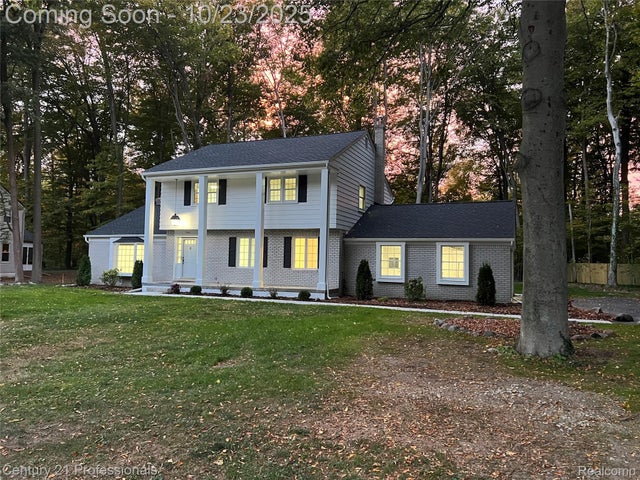
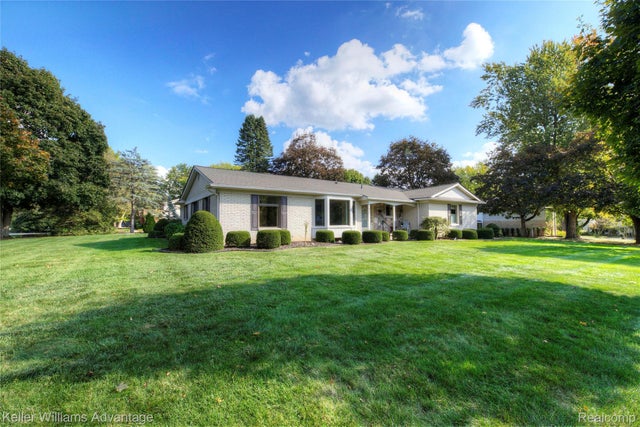

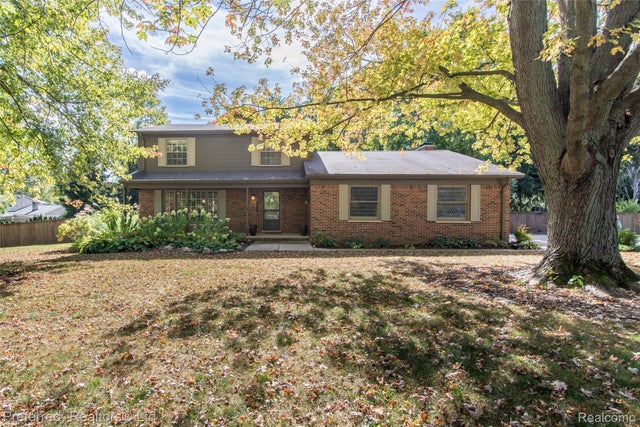
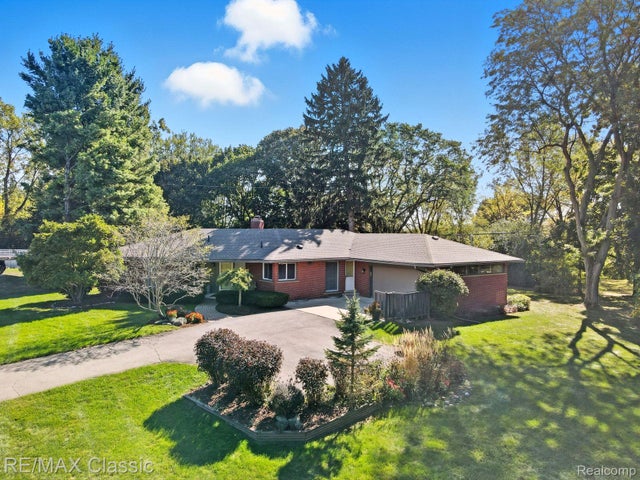
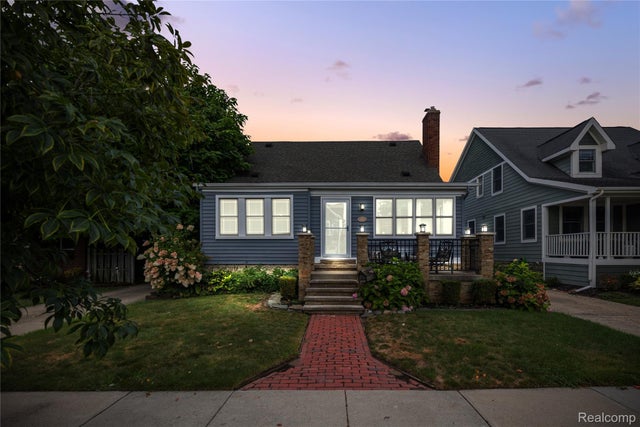
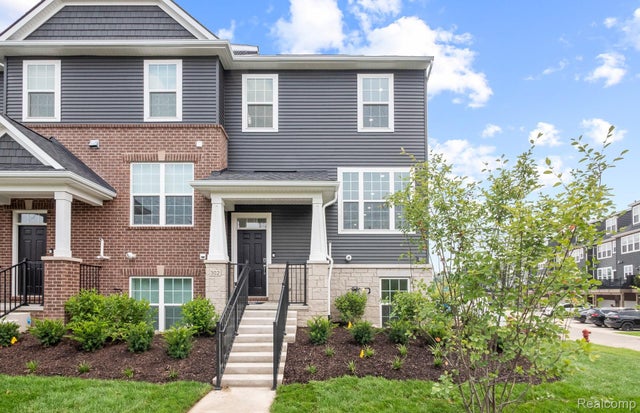
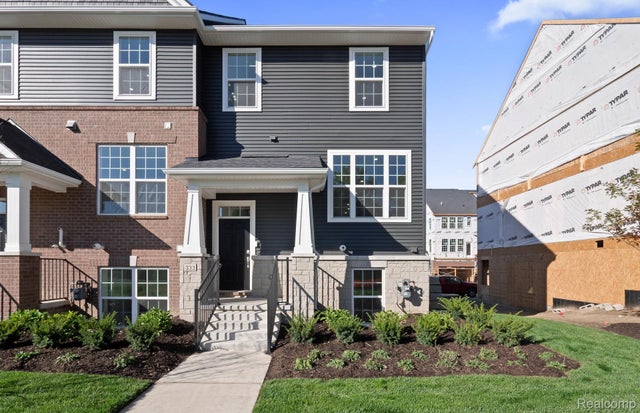
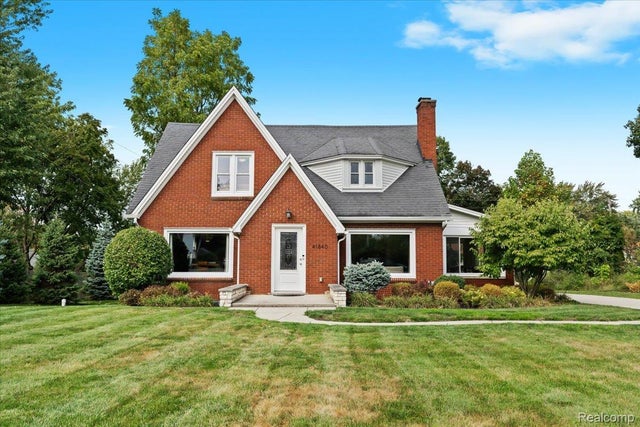
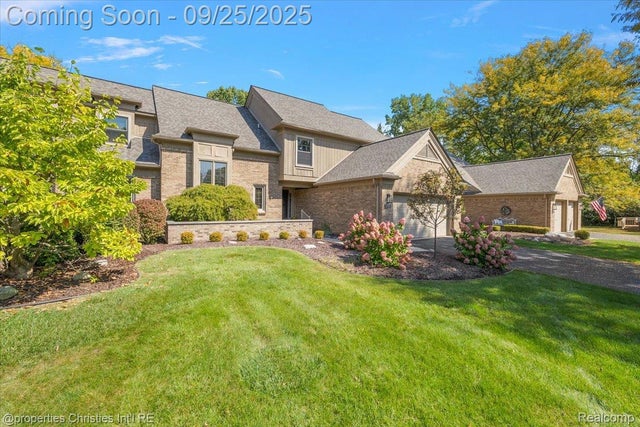


Leave A Comment